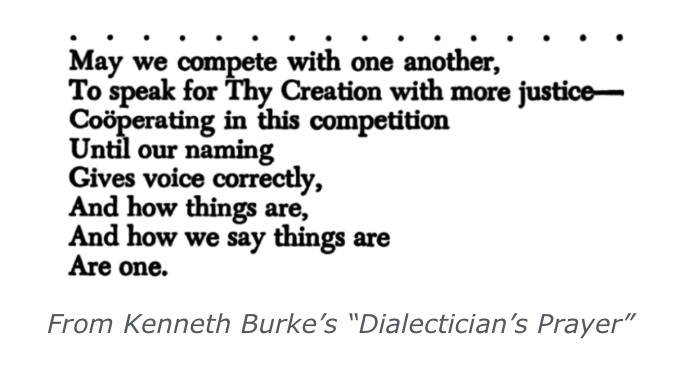Martian thoughts on the humanitarian sector and humanity

Nearly a year ago in February 2021 three vehicles launched from Earth visited Mars, and two of them landed on the surface. For some of us, these events served as a small respite from COVID worries, impeachment trials, military coups, and far too many massive humanitarian needs across the globe.
Talk of space travel has always excited my imagination and so, in that spirit (and as an homage to Horace Miner) I offer my thoughts on what a Martian might think if they were to visit their neighbor and ask about this idea called the ‘humanitarian imperative’ and other related matters.
Martian: Thank you for allowing me this visit to Earth. Since humans seem to be the apex life form in terms of brain power, may I ask you some questions about ‘humanity’?
Sociologist Arcaro: You are very welcome. Please feel free to ask anything you’d like.
Martian: A quick scan of your planet indicates there are about 8 billion humans and that many hundreds of millions are at mortal risk due to both natural disasters and human to human conflict. Our data also indicate that over 5 million human children under the age of 5 die each Earth year -nearly 14,000 every 24 hours- from preventable causes. Are you taking care of those most in need of assistance?
Sociologist Arcaro: Yes, we have a comprehensive system of humanitarian organizations providing aid to many in need. About $35 billion USD is required this year by the aid industry to provide food, shelter, medical care, education, security, and other needs to about 160 million people targeted for aid.
Martian: Our research revealed that this ‘humanitarian system’ is chronically underfunded by as much as 40%, and that many in dire need remain unseen by this system due to a curious and inefficient prioritization system. Why isn’t there full funding for all who need humanitarian assistance?
Sociologist Arcaro: The humanitarian organizations are doing as much as then can with limited resources.
Martian: Contradiction. You appear to have ample resources. I see that in one nation alone nearly that much -$21.5 billion dollars- was spent on this mysterious Valentine’s Day holiday. The profits for the makers of a game called Fortnight make about $5 billion in one year. You humans spend about $12 billion per year watching each other have sex. Your ‘humanity’ seems quite full of contradictions. One of your great leaders made a point of saying that all oppression is bad in obvious ways for the oppressed but also hurts the oppressor, draining their humanity.
Also, we see that one of your humans had their net worth increase by $121 billion dollars in one year. This is 3.5 times more than the entire ‘humanitarian aid industry’ spends in one year for over 160 million people. How can you humans justify a system which allows for such an immoral accumulation of wealth?
Sociologist Arcaro: There’s a long answer to that question involving many social forces fueled by deeply entrenched economic and political ideologies, most prominently neoliberalism. In short, neoliberalism argues that the free capitalistic market will efficiently identify and find a way to effectively monetize the satisfaction of all human needs and that only a bare minimum of government regulation is needed. To insure proper motivation individual entrepreneurs must be rewarded for their ideas and efforts based on what this free market allows. Humanity has not systematically addressed the morality issues around massive pooling of wealth. The assumption is that jobs that hold high responsibility and take extensive training or exceptional skills are paid proportionately more for their work.
Martian: Given the life-critical work that they do are humanitarian workers paid well?
Sociologist Arcaro: Some of the very top positions like Country Director or Chief of Party can make nearly $100,000 per year or more, but the vast majority of humanitarian workers, especially those from and working in the Global South (also know as the majority world) make far less, likely about USD$20,000 per year. Relative to the importance of the work they do humanitarian workers are not paid much, I guess.
Martian: Contradiction. Your free market system pays essential workers like humanitarians or teachers far less -by orders of magnitude- than the basketball players we see on your broadcasts. Humanitarians get small compensation -USD$10,000 per year- where the average NBA professional basketball player makes nearly USD$8,000,000. You are telling me that men that play games are worth 800 times more than men and women who save lives?
We also see that your local, national, and international media reports extensively on various sporting activities and individual athletes, and in the US of A you have an unofficial holiday called the ‘Super Bowl.’ Why is there no such coverage of the activities of humanitarians? Who tells their stories? Your way of prioritizing the distribution of both material and non-material wealth and status are riddled with contradictions.
Sociologist Arcaro: That’s a pretty broad statement, but you may be correct.
Martian: You have a United Nations that produced a detailed ‘Universal Declaration of Human Rights‘ that is a wonderful statement demanding a just world for all humans, but since that document was published in your year 1948 there have been dozens of genocides and wealth disparities have gotten so much more extreme. Contradictions.
We see that you have sent yet more vehicles to our planet. This effort surely came as the fruit of much cooperation. We also see that you have an international space station orbiting your planet. How is it that you can have that shining symbol of cooperation and coordination above you and quite the opposite on the planet below?
Sociologist Arcaro: We do have moderate to good cooperation and coordination among those in the scientific community, and there are some transnational organizations, notably the United Nations, whose mission is to facilitate unified actions, but ‘free enterprise’ and hyper aggressive nationalism retards many efforts to address major global issues.
Martian: Yes, we see this. One major example is a tragic and flaccid response to your climate crisis problems. If current trends continue human life will barely be possible on your planet by the year 2100. How is it possible that you are not responding to this suicidal behavior?
Sociologist Arcaro: Many on our planet are afflicted with what I can the ‘mentality of exploitation’ that allows for and even encourages environmentally irresponsible behavior. Many would agree that you are right, that collectively we are committing suicide. A recent movie -‘Don’t Look Up’ provides one description of the mentality that grips our planet. Many scientists agree with the premise of the movie. Sad, I know.
I am assuming that Martian nature is similar to human (Earthling) nature. Have you done a better job on your planet caring for those in need? If so, how? Is there a ‘Martianatarian imperative’ like our humanitarian imperative?
Martian: We have what is called the Wholeness Award. It goes to the person or organization whose way of being-in-the-world is such that their words and actions match most perfectly. Although in our early history we went through a period where basic Martian feelings like greed, lust, and gluttony were able to flourish, various positive rewards like the Wholeness Award slowly moved our global Martian culture in a positive direction. Whenever we interact with each other in any situation -work, family, recreation- we all give positive reinforcement when positive Martianistic words and actions match. Over time we slowly tamped down negative and destructive Martian impulses of gluttony, greed, and lust. Our social institutions found ways to reward positive behavior and shame behavior that reflected these counter-Martianistic behaviors. We also developed many norms, policies, laws, institutions and rules for behavior which fight against any actions which marginalize other Martians or the Martian planet itself.
The difference between the Martianatarian imperative and humanitarian imperative is that your humanitarian imperative has a wide gap between what you say and what you do. The Martianitarian imperative has no such gap. Your planet has normalized and glorified gluttony and greed, ours has normalized and glorified wholeness values.
Arcaro sociologist: I hear you. There are some humans who believe as you do, but they are not in major positions of power, alas.
Martian: We still have so many questions for you Earthlings….
How is it that you have such awards for people like the Nobel Peace Prize but some of the winners have acted in a way that is directly contrary to your humanitarian imperative? There are many examples of this, most recently the 1991 Peace Prize winner was directly involved in a genocide. Aung San Suu Kyi was lauded “for her non-violent struggle for democracy and human rights” but supported the marginalization of many ethnic groups in Myanmar and the genocide of the Rohingya.
How is it that you have so many pogroms and genocides, people killing other people just because they worship a different God or have a different color skin?
How is it that you seem to worship national sovereignty? On Mars we see ourselves as one family whose fate is jointly shared. You seem mired in nation versus nation competition that is wholly dysfunctional.
So, on Mars it does not matter where are you are born. You have the same rights and same opportunities to live a life of dignity. It appears that on your planet where are you are born can lock you into a life of marginalization on one hand or, if you’re born in certain what you call ZIP Codes in the United States, your future seems quite bright. How is it that a mere accident of birth can either doom or bless a person for their entire lifetime?
In your language you would say ‘hypocritical’ that there is a very disturbing inconsistent gap between how you describe the world in your documents and how you act, that is, the gap between your ideal culture -what you put into your official documents-, and your real culture, your actual behavior. Why is there such a gap?
I see that you talk about this idea of a humanitarian imperative. On Mars we have the Martianitarian imperative. What that means is that we all have a responsibility to each other to provide basic dignity, basic needs, and basic opportunities for growth on all levels. It appears in your documents that the humanitarian imperative implies the same thing, but your actions do not make sense to us.
I am very curious about why extraordinary sums of resources are put into war and comparatively little (by orders of magnitude) resources are put into maintaining peace and maintaining justice, living up to the humanitarian imperative. Just the top ten nations on your planet spend nearly $1.4 trillion dollars per year on weapons and defense and yet only $35 billion is spent on humanitarian aid. How can you explain that massive gap to me, please?
We have more questions, but let us make an observation. Your humanity seems in trouble. We are sorry to see your plight. But it is of your own making and all we can say in terms of advice is to listen to your wise leaders who preach love and acceptance and reject ideologies that lead to global suicide. Find ways to denormalize gluttony and greed, to tamp down the more negative parts of your nature, and to flourish as a species in harmony with the other life forms on your planet.
Arcaro Sociologist: Thank you for your observations and your advice. For the sake of humanity I hope that if you visit us again in the future we will have addressed our many cultural contradictions and some of the important questions you pose.



 Follow
Follow